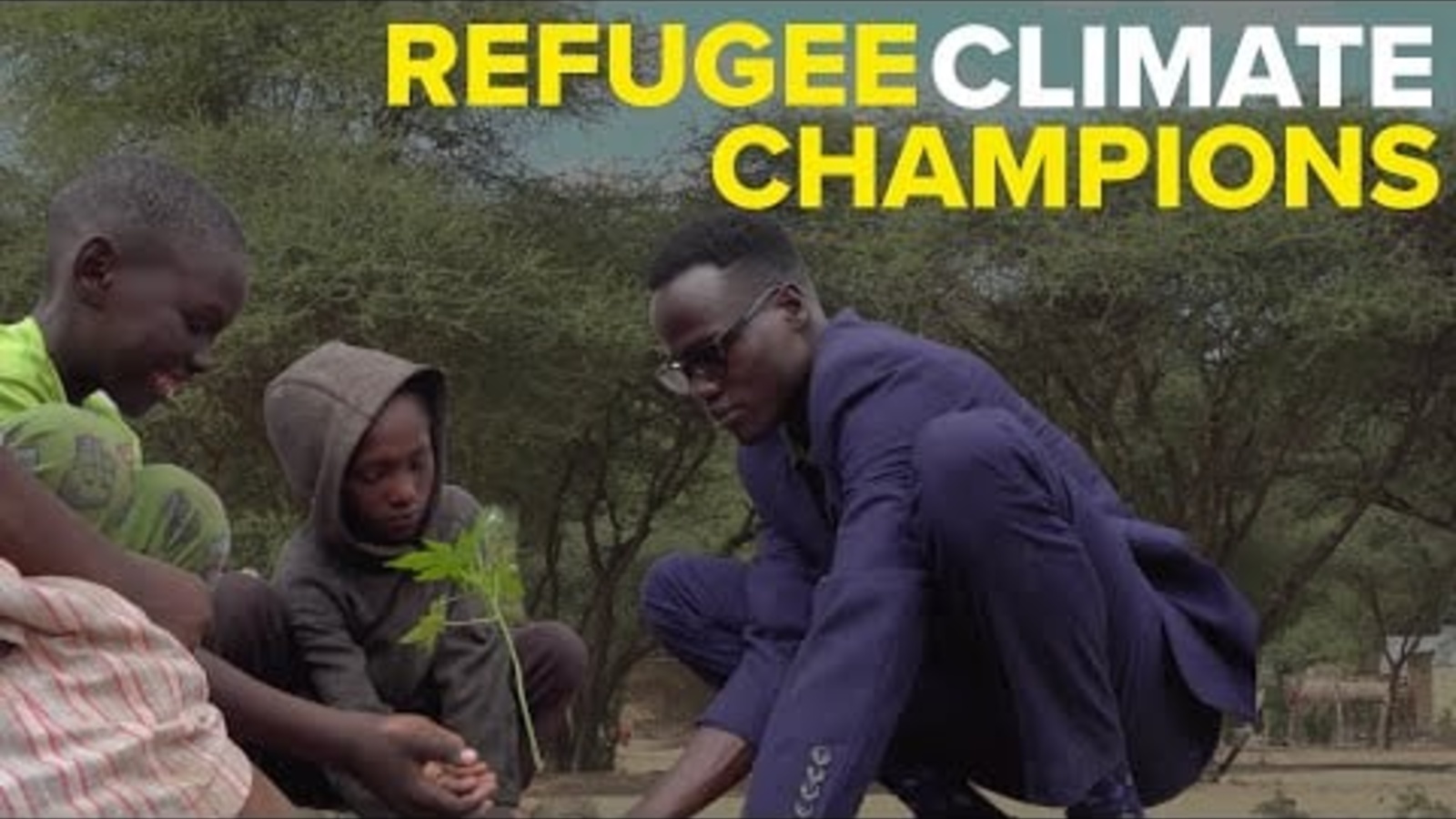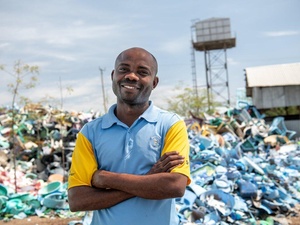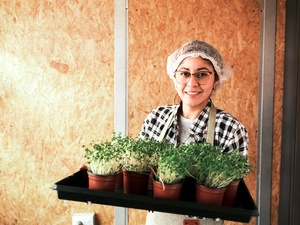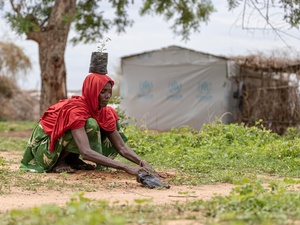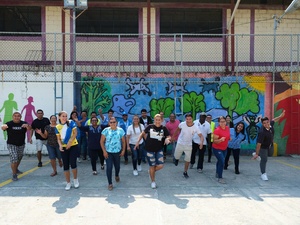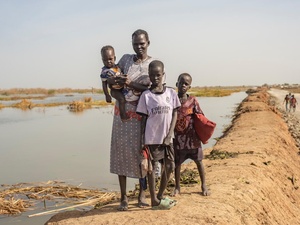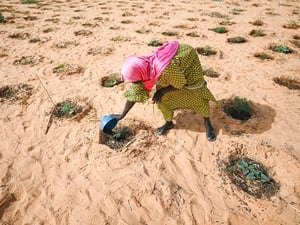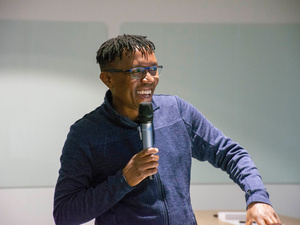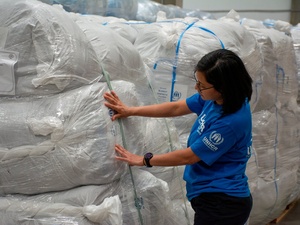Young refugees champion climate action in Zimbabwe’s Tongogara camp
Young refugees champion climate action in Zimbabwe’s Tongogara camp

Young climate activists belonging to the Refugee Coalition for Climate Action (RCCA) plant a mango tree in Tongogara refugee camp.
Jeanne Muhimundu vividly remembers the day Cyclone Idai struck Tongogara refugee camp in March 2019. The now 21-year-old refugee from Rwanda was at home with her parents and her five siblings when strong winds and torrential rains hit the area.
“Our house got seriously damaged,” she recounts. “Lots of people became homeless in the refugee and local communities. Our livestock also died.”
Although less severe, cyclones Charlene in 2021 and Ana in 2022 also impacted the camp. Tongogara is regularly and increasingly exposed to cyclones, heavy rains, and scorching temperatures. The nearby Sabi river floods regularly, forcing refugees to flee their shelters and in the summer, temperatures frequently reach 45°C. In the Southern Africa region, other camps for refugees and internally displaced people in Angola, the Democratic Republic of the Congo (DRC), Malawi, Mozambique, and Zambia, are equally climate-vulnerable.
“All these disasters made me realize how people can lose their livelihoods, their houses; how their lives can change in a minute. What I experienced and witnessed in the camp made me want to act,” says Jeanne, explaining her decision to join the Refugee Coalition for Climate Action (RCCA), a group created by young refugee activists in April 2020 to sensitize camp residents to the impacts of climate change and the necessity of preserving their environment.
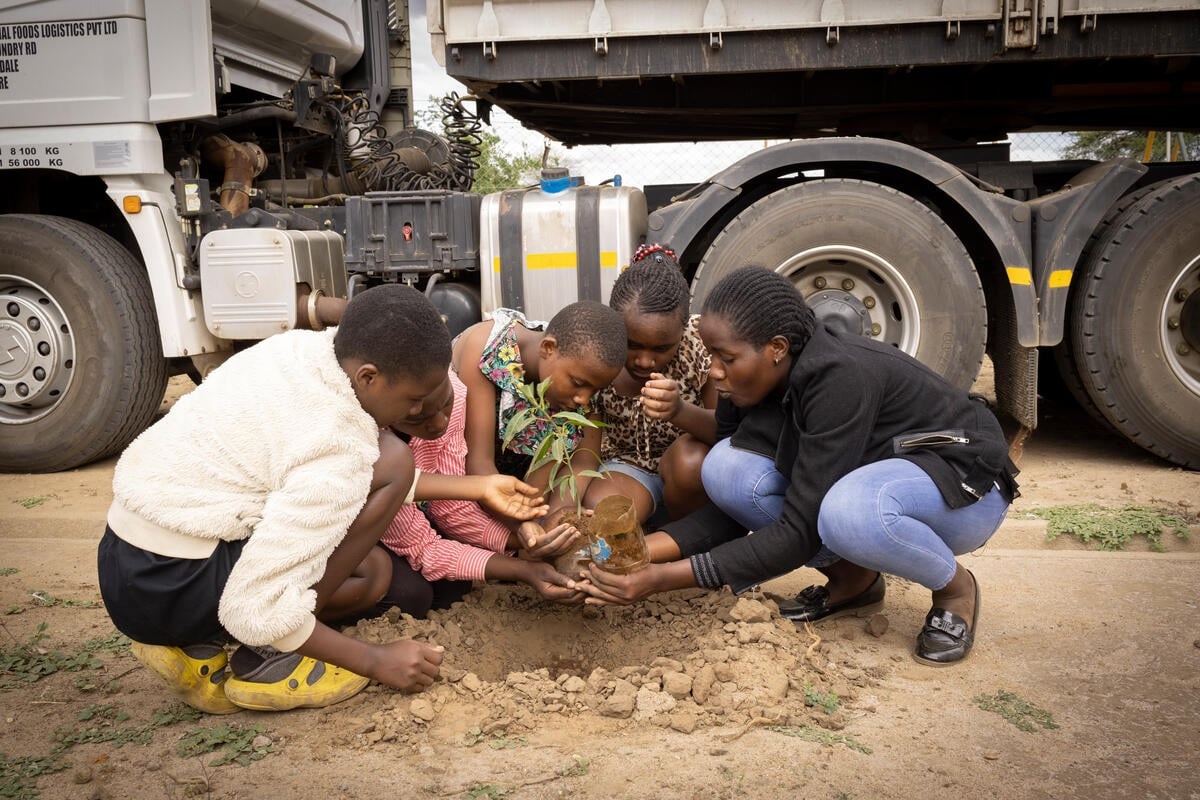
Jeanne Muhimundu (right) plants a mango tree with children in Tongogara refugee camp.
Two thousand trees planted
Tongogara camp was established in 1984 to accommodate Mozambican refugees fleeing the civil war in their country. It is now home to some 16,000 refugees, mainly from Burundi, Mozambique, and Rwanda. As new waves of refugees sought safety in Tongogara over the past two decades, many trees were cut down for firewood, and to build shelters and produce charcoal for personal use and to generate an income.
“When my family and I arrived from the DRC (the Democratic Republic of the Congo) in 2010, there were trees everywhere,” recalls Elie Tshikuna, another young climate activist and founding member of the RCCA. “As the camp grew with more refugees, more trees were cut down. I used to find shade under the trees along the way to school when it was hot. That doesn’t exist anymore. Now the trees are mainly on the edge of the camp.”
Like Jeanne, Elie, 23, is committed to making the Earth a better place. He and other RCCA members regularly mobilize 30 to 50 young refugees for tree planting.
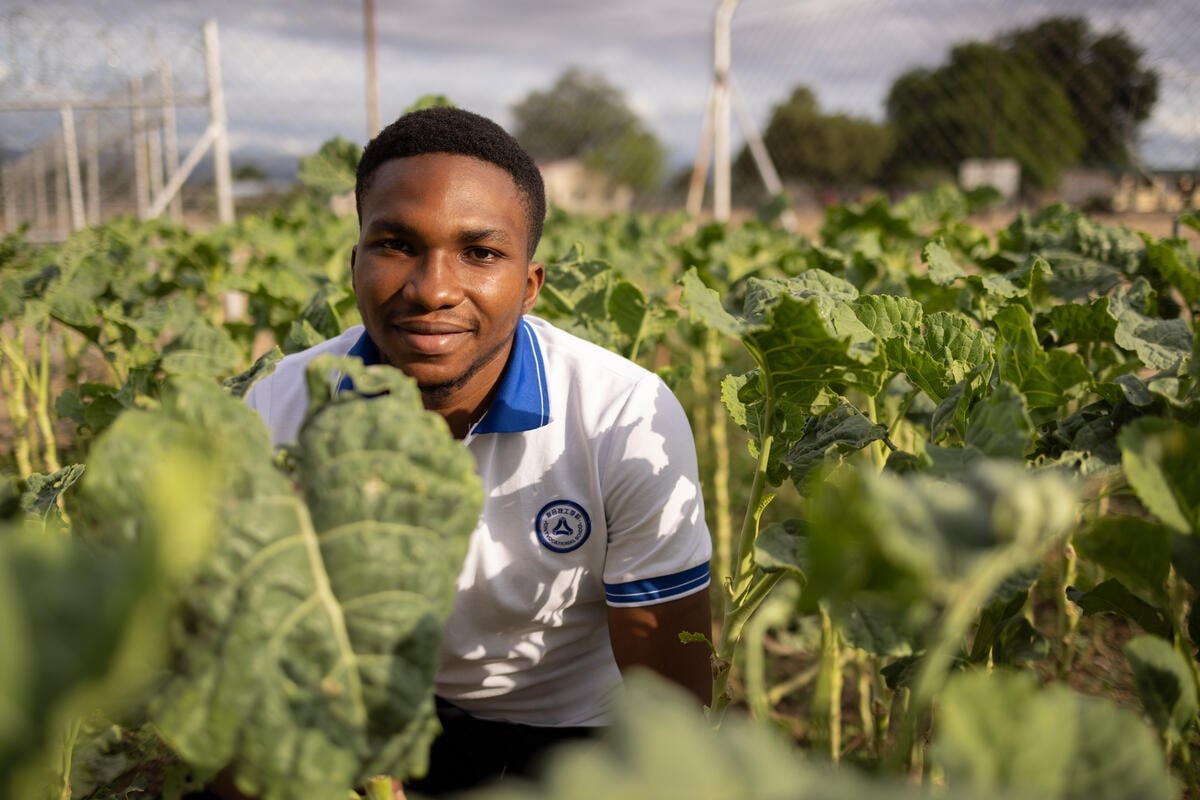
Elie Tshikuma is one of the most active members of the Refugee Coalition for Climate Action (RCCA).
“This is how the Earth heals,” he explains. “By planting trees, we are giving a direct message to world leaders that we want less carbon monoxide and carbon-related substances in the atmosphere. This is also a way of championing responsibility in children and young people as they grow up knowing that for every tree cut down, it must be replaced.”
As well as providing shade in the summer, the trees act as windbreakers during storms, and prevent soil erosion. Since 2020, the RCCA has planted around 2,000 trees in and around Tongogara, including fruit trees such as mango, macadamia, pawpaw, lemon and orange trees that have additional benefits for the community.
Changing mindsets
When they started their awareness raising in Tongogara, the RCCA members faced resistance from other refugees. Climate change and environmental issues were unknown and not perceived as priorities. “I think we've done a great job in changing the mindset,” Elie says with pride. “We've interacted with over 2,000 children and young people through awareness campaigns. We took the time to explain to them that climate change is a global crisis and that their action in Tongogara is part of the global response.”
UNHCR, the UN Refugee Agency, and its partners in Tongogara are contributing to the refugees’ efforts to make the camp a greener place. “We are trying to promote alternative sources of energy, like the use of animal or vegetable waste,” says UNHCR Yuhei Honda in Tongogara. “We’re hopeful these kind of alternatives will pick up.”
UNHCR has also installed solar systems to power five water boreholes in the camp, instead of the usual diesel-powered generators.
Cleaning campaigns are another important activity organized by the RCCA. Every first Friday of the month, dozens of young refugees armed with gloves, brooms, and bins fan out across the camp, picking up rubbish such as empty soda cans, plastic bottles, plastic bags and leftover charcoal.
“All abandoned by people who clearly have no idea of the negative impact they generate on the environment,” comments Gawaar Juich, a 27-year-old South Sudanese refugee whose house was completely destroyed when Cyclone Idai hit Tongogara. “It is a long process to educate people, especially the older generations who have the ingrained habit of disposing of their garbage anywhere. We are hoping to slowly but surely win them over to more eco-friendly methods of garbage disposal.”
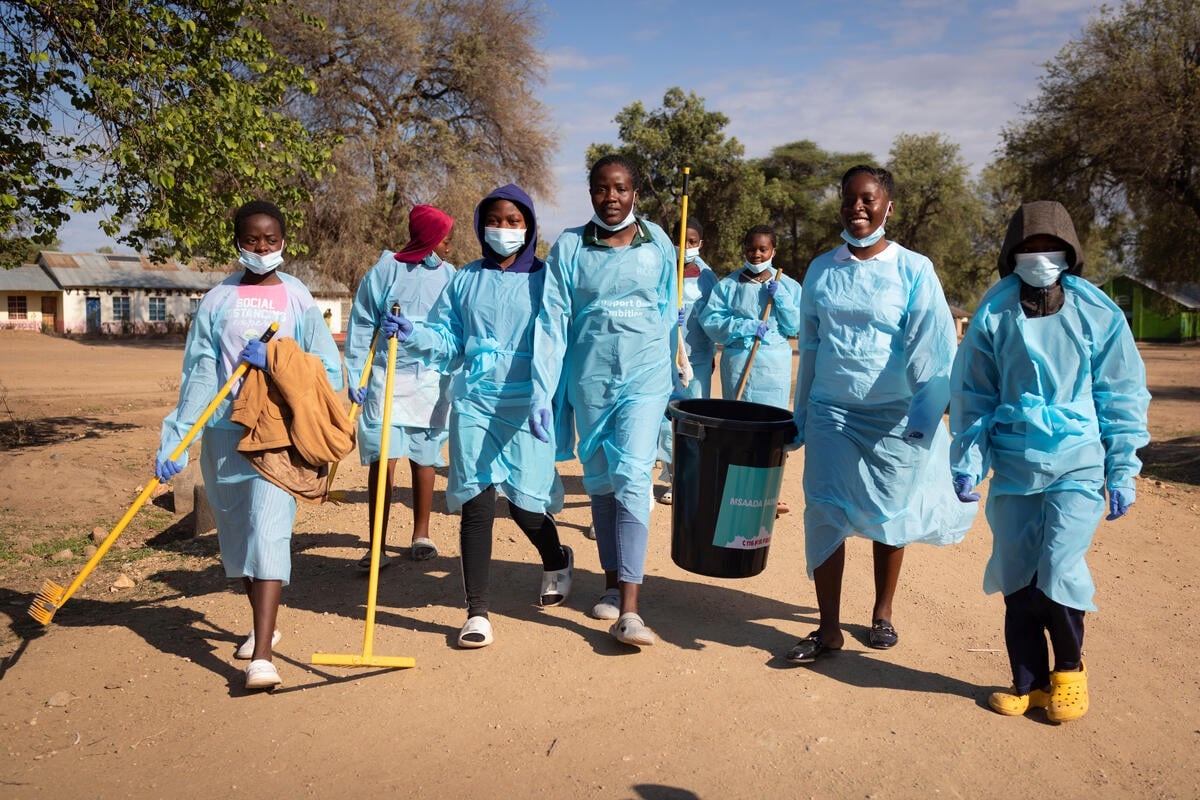
Jeanne (centre) on her way with fellow members of the RCCA to pick up rubbish in the camp.
The fact that children and young people are participating in these campaigns is a huge achievement for Gawaar and his colleagues. Children have told them that they are advising their parents not to dispose of rubbish anywhere, but in designated bins. They have also stopped burning plastic and PVC because they now understand the health risks.
“I really enjoy conducting sessions on climate action and the preservation of the environment with children,” says Jeanne. “We educate them on the issue of climate change and its impact. We also tell them it is a very serious issue globally and what they can do to mitigate its effects.”
The young climate activists envision a camp free of all non-biodegradable materials, full of trees, and with proper waste management systems. In the meantime, they have a message for world leaders attending the UN climate change conference – COP28, which started in Dubai last week.
“It is time for them, for us, to take responsibility for our actions as the human race,” says Elie. “Some of the damage done to the Earth is irreversible. But my hopes are that we act in time to stop climate change or reduce its effects, and support and protect the next generation. I don't believe it is lost yet.”
"What I experienced and witnessed in the camp made me want to act."


